About
Message from the President
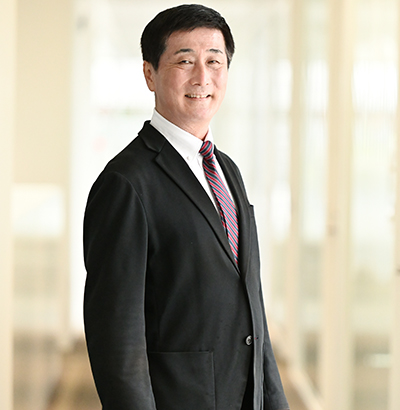

Leading the creation of a new society and pioneering the future: Yokohama City University
Yokohama City University (YCU) is located in Yokohama City, Japan's largest municipality. It was formed from the merger of two undergraduate schools: the School of Commerce and the School of Medicine. The School of Commerce, initially founded as the Yokohama School of Commerce (Yokohama Shoho Gakko) in 1882, was later renamed the Yokohama City College of Commerce. Meanwhile, the Provisional Hospital (Kari Byouin), established in 1871, was renamed Juzen Hospital. This hospital led to the establishment of the Yokohama Municipal Medical College in 1944, which later became the Yokohama Medical College. These institutions merged to form the original YCU. The University has since undergone significant reforms, including reorganization and the establishment of new undergraduate schools and graduate schools, resulting in its current structure of five schools and six graduate schools.
Dr. Yuteki Hayashi, a physician and entrepreneur, played a significant role in founding and operating the Kari Hospital during the early Meiji period. Beyond his contributions to healthcare, he founded banks and other businesses, many of which have evolved into major companies in contemporary Japan. His entrepreneurial spirit continues to influence YCU today.
In this "age of VUCA—Volatility, Uncertainty, Complexity, and Ambiguity" our goal is to develop human resources in Yokohama, who will lead both Japan and the world.
YCU's compact size is one of our strengths, and its commitment to small-group education and the close proximity between students and faculty and staff are also major features. Various student support services, such as financial aid and career support, are also available. YCU also offers the ADEPT Program (AI Data Science Education Program), the Program to Develop Human Resources for Leading Medical Innovation, and the Entrepreneurship Development Program, which are cross-disciplinary programs designed to give students a broad perspective and encourage them to take on new challenges.
In addition to its educational strengths, YCU boasts world-class research capabilities. It consistently produces innovative and original research across various academic fields and engages in interdisciplinary research that creates new value and leads to societal innovations. Additionally, YCU's two affiliated hospitals deliver safe, advanced, and cutting-edge medical care, serving as “the last bastion" for the safety and security of Yokohama’s citizens, including responses to infectious disease pandemics and advanced emergency medical services. YCU is also committed to achieving the Sustainable Development Goals (SDGs) by leveraging its educational, research, and other resources.
Deeply intertwined with the City of Yokohama both in name and in practice, YCU will celebrate its 100th anniversary in 2028. Beyond tradition and innovation, YCU is committed to ongoing development and will continue to enhance our university to maintain a leading role in education, research, and medicine. We aim to be recognized as “the hub of knowledge” now and in the future.
Yokohama City University (YCU) is located in Yokohama City, Japan's largest municipality. It was formed from the merger of two undergraduate schools: the School of Commerce and the School of Medicine. The School of Commerce, initially founded as the Yokohama School of Commerce (Yokohama Shoho Gakko) in 1882, was later renamed the Yokohama City College of Commerce. Meanwhile, the Provisional Hospital (Kari Byouin), established in 1871, was renamed Juzen Hospital. This hospital led to the establishment of the Yokohama Municipal Medical College in 1944, which later became the Yokohama Medical College. These institutions merged to form the original YCU. The University has since undergone significant reforms, including reorganization and the establishment of new undergraduate schools and graduate schools, resulting in its current structure of five schools and six graduate schools.
Dr. Yuteki Hayashi, a physician and entrepreneur, played a significant role in founding and operating the Kari Hospital during the early Meiji period. Beyond his contributions to healthcare, he founded banks and other businesses, many of which have evolved into major companies in contemporary Japan. His entrepreneurial spirit continues to influence YCU today.
In this "age of VUCA—Volatility, Uncertainty, Complexity, and Ambiguity" our goal is to develop human resources in Yokohama, who will lead both Japan and the world.
YCU's compact size is one of our strengths, and its commitment to small-group education and the close proximity between students and faculty and staff are also major features. Various student support services, such as financial aid and career support, are also available. YCU also offers the ADEPT Program (AI Data Science Education Program), the Program to Develop Human Resources for Leading Medical Innovation, and the Entrepreneurship Development Program, which are cross-disciplinary programs designed to give students a broad perspective and encourage them to take on new challenges.
In addition to its educational strengths, YCU boasts world-class research capabilities. It consistently produces innovative and original research across various academic fields and engages in interdisciplinary research that creates new value and leads to societal innovations. Additionally, YCU's two affiliated hospitals deliver safe, advanced, and cutting-edge medical care, serving as “the last bastion" for the safety and security of Yokohama’s citizens, including responses to infectious disease pandemics and advanced emergency medical services. YCU is also committed to achieving the Sustainable Development Goals (SDGs) by leveraging its educational, research, and other resources.
Deeply intertwined with the City of Yokohama both in name and in practice, YCU will celebrate its 100th anniversary in 2028. Beyond tradition and innovation, YCU is committed to ongoing development and will continue to enhance our university to maintain a leading role in education, research, and medicine. We aim to be recognized as “the hub of knowledge” now and in the future.
Yoshihiro Ishikawa
President, Yokohama City University
(April 1, 2024)
President, Yokohama City University
(April 1, 2024)
MISSION STATEMENT
YCU's mission is to fulfill its roles and responsibilities of education, research and medical care, and as a part of the urban social infrastructure of a knowledge-based society in the international city of Yokohama. We aspire to become a university that contributes to the development of a sustainable society and a university in which local residents can take pride.
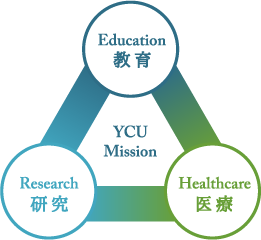

Education To nurture global human resources who can soar to the world from Yokohama
Research To create and support leading research which contributes back to society
Healthcare To provide top-quality healthcare and promote medical knowledge
History
The origin of Yokohama City University(YCU) can be traced back to Yokohama School of Commerce founded in 1882. Since the opening of the port, Yokohama turned into a center of trade in Japan. Yokohama School of Commerce was established to develop human resources equipped with western commercial techniques. Because of its policy of complete educational pragmatism, many children of merchants in Yokohama who had a strong interest in learning attended this school. After graduation, many of them contributed to the development of the city in the front lines of trade industry. In 1928, Yokohama School of Commerce then developed into Yokohama City College of Commerce(Y-sen), which is the predecessor of YCU.
Another origin of YCU is Yokohama Temporary Hospital in 1871. Although Yokohama was the center of western medicine at that time, there was no hospital for the citizens. The hospital was founded to respond to the earnest needs of the community. The hospital was renamed to Juzen Hospital in 1874, then turned into Yokohama Municipal Medical College, which has developed into what is known today as the Yokohama City University Hospital and YCU’s School of Medicine.
YCU is expected to celebrate its 100th anniversary in 2028.
Another origin of YCU is Yokohama Temporary Hospital in 1871. Although Yokohama was the center of western medicine at that time, there was no hospital for the citizens. The hospital was founded to respond to the earnest needs of the community. The hospital was renamed to Juzen Hospital in 1874, then turned into Yokohama Municipal Medical College, which has developed into what is known today as the Yokohama City University Hospital and YCU’s School of Medicine.
YCU is expected to celebrate its 100th anniversary in 2028.
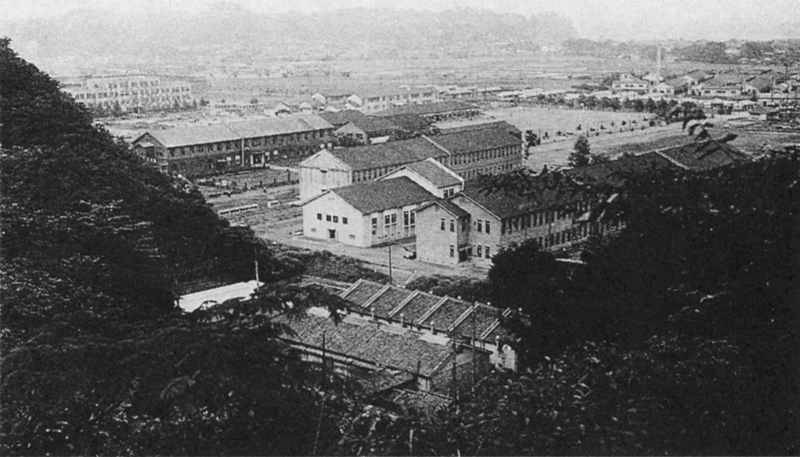
1954 Kanazawa-Hakkei Campus
YCU & Yokohama
As the first port in Japan to open to the world in 1859, Yokohama is a place where the new and the old come together in harmony. While the city is at the cutting edge of technology, it also cherishes its many historic assets. It offers the dynamism and diversity of city life, but also havens of serenity with more quiet locales such as its traditional Japanese garden.
A lot of our students come from Kanagawa prefecture and hold Yokohama close to their hearts, and because of that we aspire to become a university that contributes to the development of a sustainable society and a university in which local residents can take pride.
A lot of our students come from Kanagawa prefecture and hold Yokohama close to their hearts, and because of that we aspire to become a university that contributes to the development of a sustainable society and a university in which local residents can take pride.
Campuses
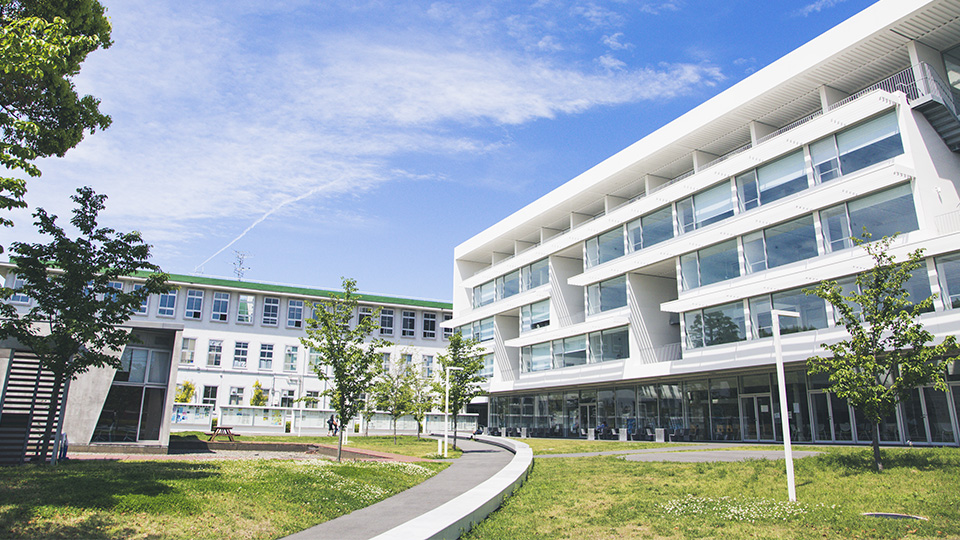

Kanazawa-Hakkei Campus
22-2 Seto, Kanazawa-ku, Yokohama 236-0027 JAPAN
Kanazawa-hakkei campus is YCU’s main campus, which houses the university’s trademark clock tower and ginkgo tree-lined main streets. Kanazawa-hakkei campus includes YCU’s Central Administration, all of YCU’s undergraduate schools (besides the School of Medicine), the Graduate School Urban Social and Cultural Studies, the Graduate School of International Management, and the Graduate School of Nanobioscience’s department of Materials System Science.
ACCESS CAMPUS MAP
Kanazawa-hakkei campus is YCU’s main campus, which houses the university’s trademark clock tower and ginkgo tree-lined main streets. Kanazawa-hakkei campus includes YCU’s Central Administration, all of YCU’s undergraduate schools (besides the School of Medicine), the Graduate School Urban Social and Cultural Studies, the Graduate School of International Management, and the Graduate School of Nanobioscience’s department of Materials System Science.
ACCESS CAMPUS MAP
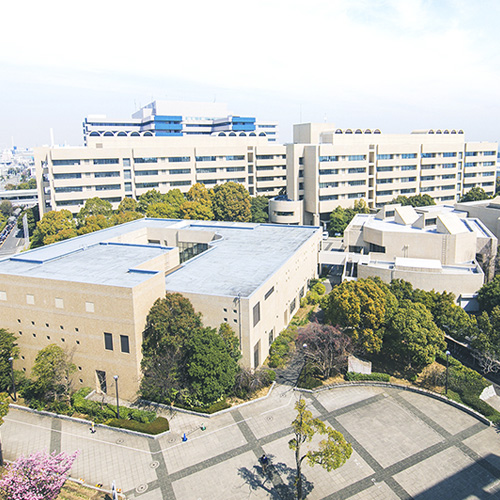

Fukuura Campus
3-9 Fukuura, Kanazawa-ku, Yokohama 236-0004 JAPAN
Fukuura campus houses YCU’s undergraduate and Graduate Schools of Medicine, Yokohama City University Hospital, and the Advanced Medical Research Center. The university hospital is connected to the Yokohama Seaside Line’s Shidai-igakubu station and overlooks Tokyo Bay.
ACCESS
Fukuura campus houses YCU’s undergraduate and Graduate Schools of Medicine, Yokohama City University Hospital, and the Advanced Medical Research Center. The university hospital is connected to the Yokohama Seaside Line’s Shidai-igakubu station and overlooks Tokyo Bay.
ACCESS
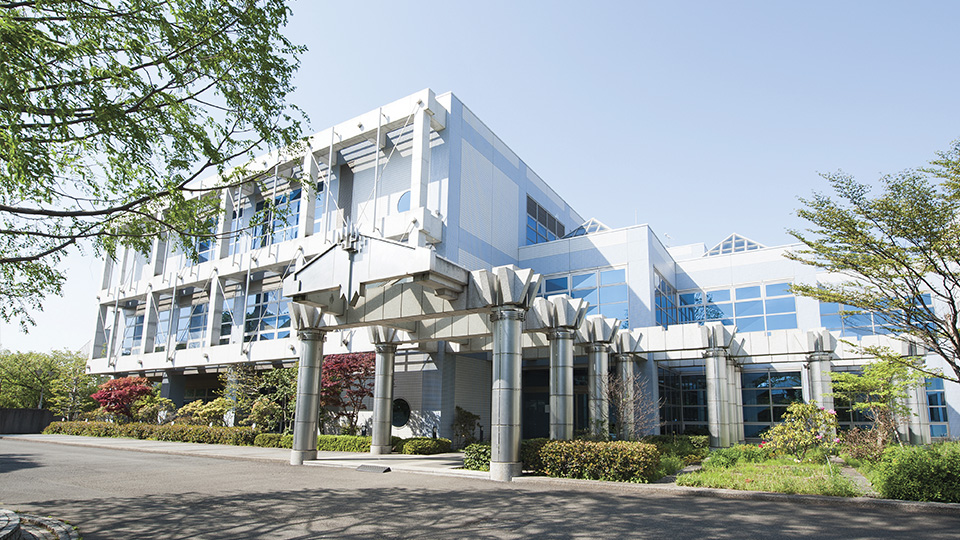

Maioka Campus
641-12 Maioka-cho, Totsuka-ku, Yokohama 244-0813 JAPAN
Surrounded by a vast amount of greens in Yokohama’s Totsuka Ward, YCU’s Maioka campus houses the Graduate School of Nanobioscience’s Department of Life and Environmental System Science and the Kihara Institute for Biological Research (KIBR), which is one of the foremost plant research institutions in the world studying wheat. The Maioka campus also houses the Kihara Memorial Room, and has, in recent times, been visited by the Emperor Emeritus and Empress Emerita of Japan.
ACCESS
Surrounded by a vast amount of greens in Yokohama’s Totsuka Ward, YCU’s Maioka campus houses the Graduate School of Nanobioscience’s Department of Life and Environmental System Science and the Kihara Institute for Biological Research (KIBR), which is one of the foremost plant research institutions in the world studying wheat. The Maioka campus also houses the Kihara Memorial Room, and has, in recent times, been visited by the Emperor Emeritus and Empress Emerita of Japan.
ACCESS
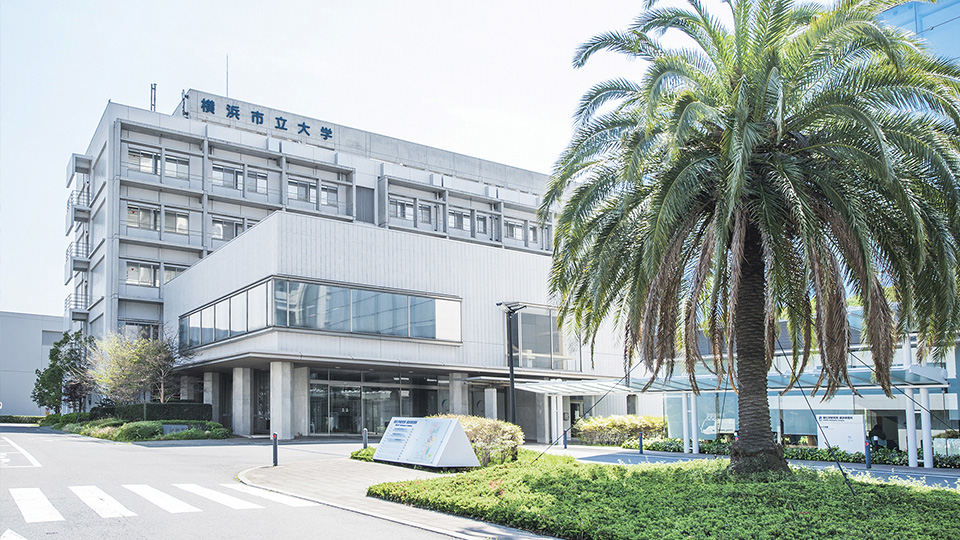

Tsurumi Campus
1-7-29 Suehiro-cho, Tsurumi-ku, Yokohama 230-0045 JAPAN
Located in northeastern Yokohama, by the Tsurumi River, YCU’s Tsurumi campus was established in 2001 as a graduate school partnership between YCU and Japan’s largest comprehensive research institution, RIKEN. Tsurumi campus houses the Graduate School of Medical Life Science.
ACCESS
Located in northeastern Yokohama, by the Tsurumi River, YCU’s Tsurumi campus was established in 2001 as a graduate school partnership between YCU and Japan’s largest comprehensive research institution, RIKEN. Tsurumi campus houses the Graduate School of Medical Life Science.
ACCESS
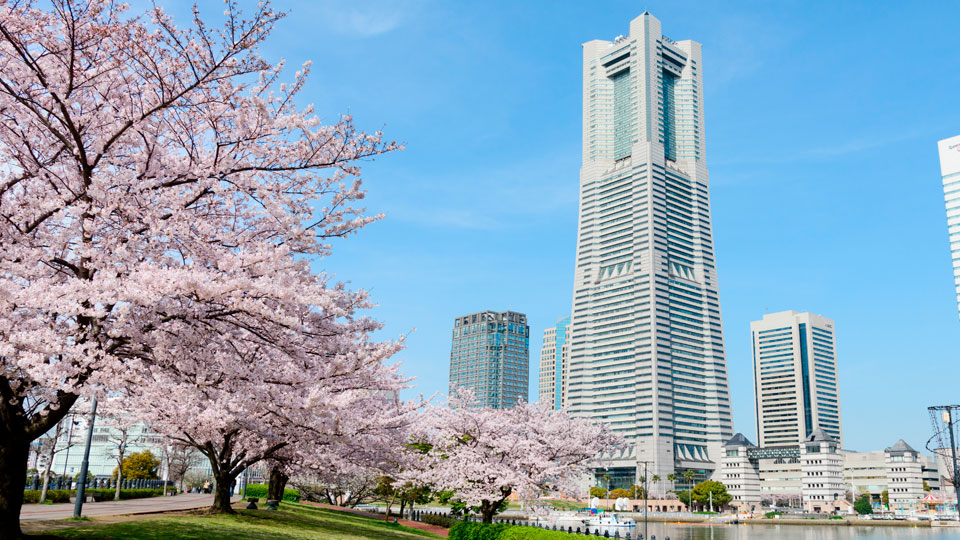

Minato Mirai Satellite Campus
2-2-1, Minatomirai, Nishi-ku, Yokohama 220-0012 JAPAN
In April 1st, 2020, Yokohama City University will open its new satellite campus within Yokohama Landmark Tower in the city’s Minato Mirai business district. The campus will be located within NANA Level (NANA Lv.), an innovation center managed by Mitsubishi Estates. The new campus will focus on providing data science courses through the newly established Graduate School of Data Science.
ACCESS
In April 1st, 2020, Yokohama City University will open its new satellite campus within Yokohama Landmark Tower in the city’s Minato Mirai business district. The campus will be located within NANA Level (NANA Lv.), an innovation center managed by Mitsubishi Estates. The new campus will focus on providing data science courses through the newly established Graduate School of Data Science.
ACCESS
